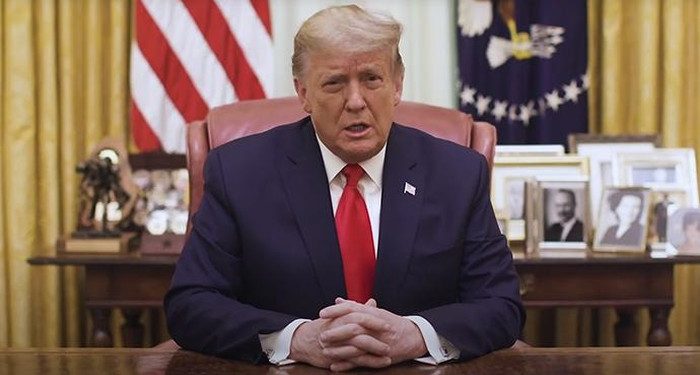The Trump administration issued a parting shot at Venezuelan President Nicolás Maduro on Tuesday, announcing a sweeping round of stiff financial sanctions that target a network accused of moving oil on behalf of the president’s alleged frontman.
In a sign of future U.S. policy toward Venezuela, President-elect Joe Biden’s choice to be secretary of state, Antony Blinken, during his U.S. Senate confirmation hearing in Washington showed support for the decision to recognize opposition politician and Maduro rival Juan Guaidó.
Blinken also expressed frustration about the results of current U.S. policy, which hasn’t led to free and fair elections in Venezuela. He said there is room for better coordination with allied nations to restore democracy to the crisis-stricken South American nation.
“Maybe we need to look at how we more effectively target the sanctions that we have,” Blinken said. “So that regime enablers really feel the pain of those sanctions.”
Venezuela, a once a wealthy oil-producing nation, has fallen into economic and political crisis in recent years that has seen a flood of more than 5 million residents flee. They are escaping a breakdown in public services and shortages including a lack of running water, electricity and gasoline.
In the latest round of sanctions trying to pressure Maduro out, the U.S. Treasury Department hit three individuals, 14 business entities and six ships with financial measures. They are accused of assisting the Venezuelan state oil company PDVSA, to evade earlier U.S. sanctions designed to stop the president from profiting from crude sales.
Trump, who leaves the White House on Wednesday, has led an international coalition over the last two years by exerting increasing pressure on Maduro to end what U.S. officials call his illegitimate hold on power.
The White House recognizes Guaidó as the nation’s legitimate leader, blaming Maduro for Venezuela’s economic and political ruin. The White House says he clings to power after undemocratic elections in 2018, when his leading rivals were banned from running.
“The United States remains committed to targeting those enabling the Maduro regime’s abuse of Venezuela’s natural resources,” U.S. Treasury Secretary Steven T. Mnuchin said in a statement.
The sanctions target people and businesses linked with Alex Saab, a Colombian businessman who U.S. officials say is a close associate of Maduro. Saab is jailed in the African nation of Cape Verde while fighting extradition to the U.S. to face corruption charges.
The primary figures targeted by the sanctions are Alessandro Bazzoni, Francisco Javier D’Agostino Casado, Philipp Paul Vartan Apikian, Elemento Ltd., and Swissoil Trading SA.
Maduro’s government blasted the sanctions as another act of “imperialist aggression” aimed at destroying Venezuela’s ability to meet its own needs through oil sales after four years of attacks from the Trump administration.
Sanctions by the U.S. Treasury’s Department’s Office of Foreign Assets Control, block any assets that targeted individuals and businesses have in U.S. jurisdictions and bar Americans from conducting financial transactions with them.
The U.S. Department of Commerce also announced measures on Tuesday to block U.S. technology from being used by military intelligence in nations including China, Cuba, Russia and Venezuela.
Commerce officials in a statement said in Venezuela they seek to deprive the General Directorate of Military Counterintelligence of any U.S. technology. Human rights groups accuse the counterintelligence agency of abuses against its own citizens, including torture.
U.S. Secretary of State Michael Pompeo spoke Monday by phone with Guaidó. U.S. Department of State spokesperson Morgan Ortagus said the two talked about their shared goal to see a peaceful democratic transition in Venezuela.
Pompeo expressed his “personal respect and appreciation” to Guaidó for the opposition leader’s “commitment to the cause of freedom and his inspiring leadership to millions of Venezuelans yearning for a brighter future,” Ortagus said.



